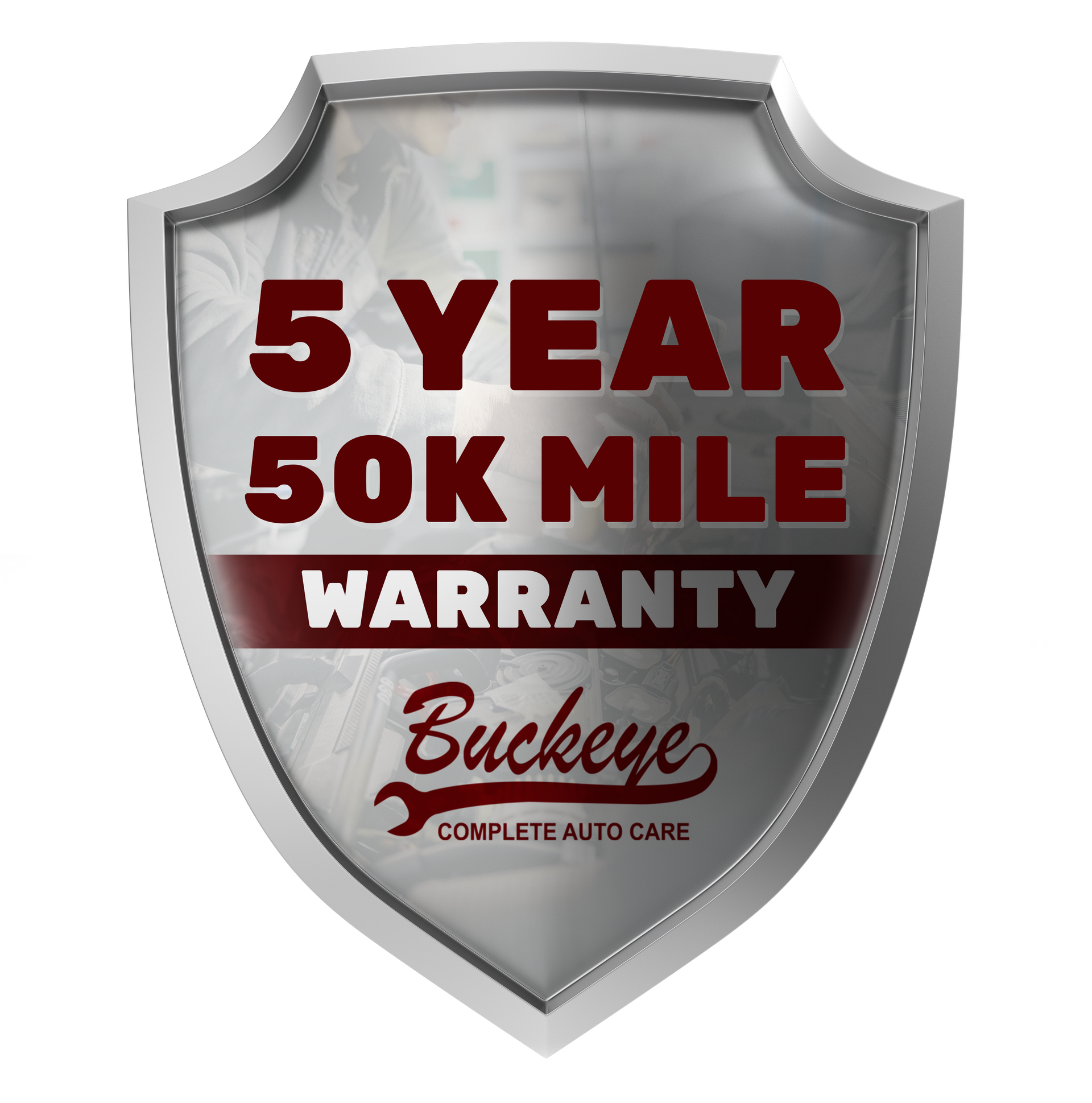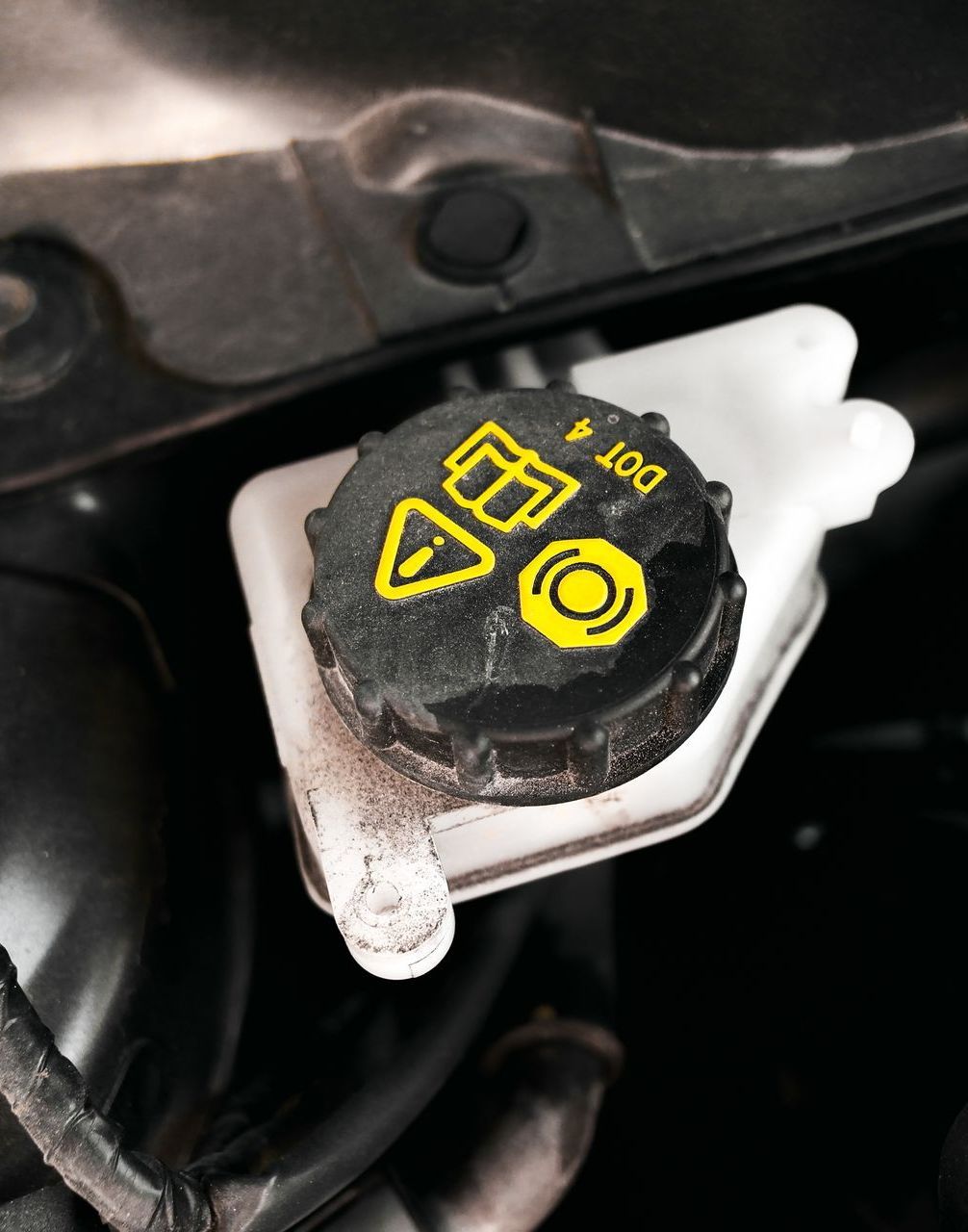Automotive Services
Brake Fluid Exchange Service Westerville
Regular brake fluid exchanges help keep your vehicle's braking performance sharp and can extend the life of your braking system components.
At Buckeye Complete Auto Care, we use high-quality brake fluid that matches or beats your vehicle's specs. Our certified techs flush the system completely, clearing out moisture, gunk, and old fluid that might mess up your brakes over time.
This helps prevent brake fade and keeps your stopping power reliable when you really need it. When it’s time for a brake fluid exchange, come by our shops in Westerville or Columbus or schedule an appointment online.
Routine Car Care
Brake Fluid Maintenance Westerville
Most manufacturers suggest changing brake fluid every 2 years or 30,000 miles. That can change depending on how and where you drive, and what kind of vehicle you have.
We always check your owner's manual for your car's specific recommendations.
Brake fluid absorbs moisture from the air over time. That moisture can corrode your brake lines and make your brakes less effective.
When the fluid gets contaminated, it usually looks darker and feels less slippery than it did when it was fresh.
Warning Signs
Signs It’s Time to Change Brake Fluid
At Buckeye Complete Auto Care in Columbus, we recommend checking your brake fluid regularly.
Here are a few signs that it's time for a brake fluid exchange.
Discolored Fluid: Fresh brake fluid is usually amber or clear. If it turns dark brown or black, it's contaminated and needs to go.
Brake Warning Light: If your dashboard brake light pops on, you might have low or dirty brake fluid. Definitely don't ignore that.
Soft or Spongy Brake Pedal: If the brake pedal feels squishy or sinks down, air or moisture in the fluid could be the issue.
Unusual Noises: Grinding, squealing, or just weird sounds when you brake can mean trouble with the fluid or the system in general.
Age of Fluid: Most manufacturers say to change brake fluid every 2-3 years, even if it looks fine. It just absorbs moisture over time, no way around it.
Routine Car Care
Brake Fluid Exchange Process
The brake fluid exchange process begins with a thorough inspection of the existing brake fluid to assess its condition and determine if a full replacement is necessary. Over time, brake fluid can absorb moisture, which reduces its effectiveness and can lead to brake system corrosion.
Next, the old brake fluid is carefully drained from the brake lines using specialized equipment. This step ensures that contaminated fluid is completely removed from the system, preventing any degradation in braking performance.
After draining, fresh, manufacturer-recommended brake fluid is added to the reservoir. Our technician then uses a bleeding process to remove any air bubbles trapped in the brake lines, which helps maintain consistent brake pressure and responsiveness.
Finally, the entire brake system is tested to confirm that the fluid exchange was successful and that the brakes are functioning safely and effectively. This service helps extend the life of your braking system and ensures optimal performance.
How Car Brakes Work
When you press your brake pedal, your car somehow turns that small foot movement into enough force to stop a moving vehicle. Kind of wild, right?
Most cars these days rely on a hydraulic brake system. Basically, they use brake fluid to send your foot's force to the brakes at each wheel.
The process kicks off when you push the brake pedal. That sets off a device called the master cylinder, which pushes brake fluid through lines to every wheel.
At each wheel, the brake fluid ramps up pressure and moves parts that create friction. If your car uses disc brakes, calipers squeeze brake pads against a spinning metal disc (the rotor).
Drum brakes work a bit differently—brake shoes press outwards against a drum. Both setups use friction to slow you down.
This friction turns your car's motion into heat. That's how your car actually loses speed and eventually stops.
Key Components of Brake Systems:
- Brake pedal
- Master cylinder
- Brake fluid
- Brake lines
- Calipers or wheel cylinders
- Brake pads or shoes
- Rotors or drums
At Buckeye Complete Auto Care, we suggest swapping out your brake fluid regularly to keep your brakes working right and keep you safe. Stop by for all of your brake repair needs.
Why Choose Us for Your Auto Repair Needs?
Our Location
Our Westerville, OH Auto Repair Shop
Phone Number: (614) 714-3367
Hours: Mon - Fri 8:00am - 5:30pm





